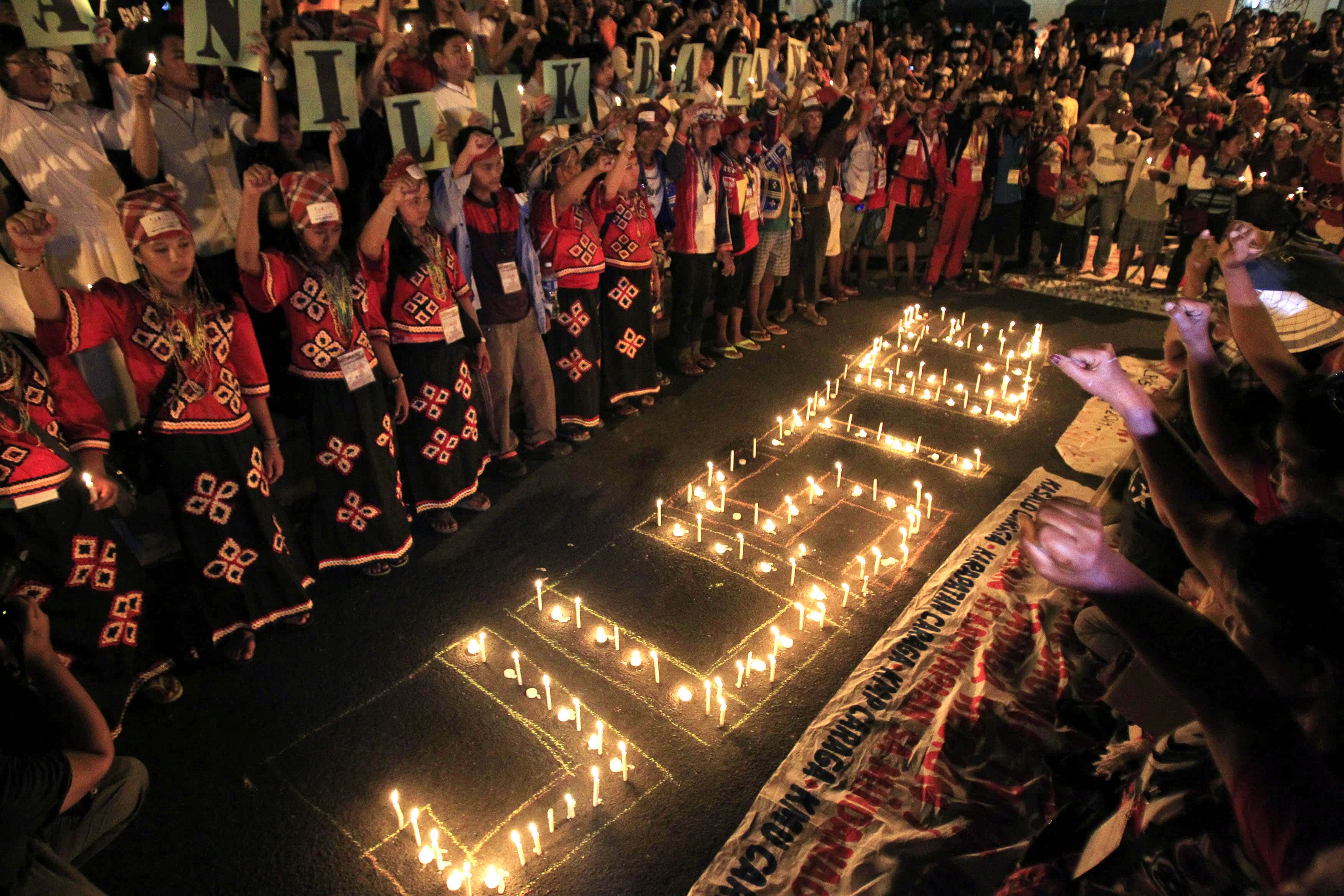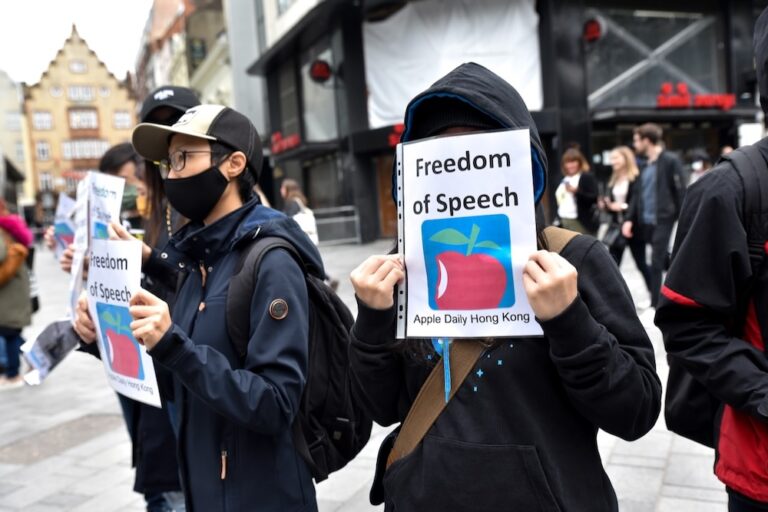Some 87 of the journalists on IPI's Death Watch for 2014 were targeted due to their profession or lost their lives while covering conflict. Another 11 lost their lives while on assignment, most in vehicular crashes.
This statement was originally published on freemedia.at on 30 December 2014.
At least 98 journalists lost their lives in connection with their profession in 2014, the International Press Institute (IPI) said on 30 December 2014, a drop from recent years but a tally that still made 2014 one of the most deadly on record.
Some 87 of the names recorded on IPI’s Death Watch this year were targeted due to their profession or lost their lives while covering conflict. Another 11 lost their lives while on assignment, most in vehicular crashes.
IPI has recorded the annual number of journalists’ deaths since 1998 on its Death Watch, which includes the names of journalists who were deliberately targeted because of their profession – either because of their reporting or simply because they were journalists. IPI also includes journalists who were killed while on assignment.
In 2013, IPI recorded the deaths of 120 journalists, a decrease from the record high of 133 deaths in 2012. That toll followed the deaths of 102 and 101 journalists, respectively, in 2011 and 2010, and 110 journalists in 2009. The only other year to exceed the 2014 tally was 2006, when 100 journalists lost their lives.
The most dangerous region for journalists in 2014 remained the Middle East, where some 38 journalists lost their lives this year. As the civil war in Syria continued to rage, at least 18 journalists were killed in that country and another nine were killed in Iraq.
The most disturbing new development was the number of executions of journalists in Syria and Iraq by the Islamic State group. The group gained particular notoriety in late August and early September when it posted video-recordings online showing the beheadings of American journalists James Foley and Steven Sotloff.
In the Palestinian Territories, six journalists died while covering Israel’s military incursion into Gaza in July and August. Journalists were also gunned down in connection with their work in Egypt, Yemen and Libya.
The second most-deadly region in 2014 was Asia, where some 23 journalists died. Afghanistan and Pakistan saw the most deaths, with five journalists murdered in each country, and the Philippines followed closely behind with four murdered. Bangladesh, Cambodia, India and Myanmar also saw journalists targeted for death.
In the Americas and the Caribbean, 17 journalists lost their lives in connection with their work, but six of those deaths, including two in the United States, were attributable to car or helicopter crashes. Mexico, Honduras and Brazil remained particularly deadly for journalists, with at least two in each country murdered this year. They were joined by Colombia and Paraguay, where two journalists in each country were also shot to death.
Africa saw 11 journalists killed. The highest number came in Somalia, where three died in bombings and another was gunned down. Journalists also perished amid unrest in the Central African Republic, the Democratic Republic of Congo and Guinea. In the latter, two were apparently killed by villagers as they covered a team of health care workers attempting to distribute information about the Ebola virus.
Europe remained the safest continent for journalists, relatively speaking, a paradox insofar as seven journalists died Ukraine, making it the third most deadly country for journalists in the world. Most journalists died in Ukraine’s restive Donbass region, killed in the crossfire between forces loyal to Kiev and those loyal to Moscow, or targeted for death under unclear circumstances.
IPI Senior Press Freedom Adviser Steven M. Ellis welcomed the drop in the overall death toll, but said that 98 deaths remained an “unacceptable” number.
“Sadly, if recent experience serves as a guide, in the majority of the cases where journalists were deliberately killed, those responsible will escape justice and enjoy impunity,” he said. “We urge both national and inter-governmental bodies to push to hold accountable everyone involved in such acts. The killing of journalists is not only a crime against them and their loved ones, but it a strikes a blow to the public’s right to be informed and, ultimately, to democracy itself.”
Further information on journalists who lost their lives in 2014 can be found at IPI’s Death Watch.



